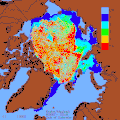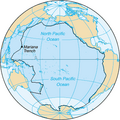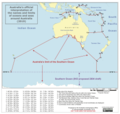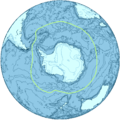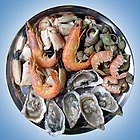Portal:Oceans
– Hover over image and scroll to middle for controls to see more selected panorama images –
Introduction
| Earth's ocean |
|---|
|
Main five oceans division: Further subdivision: Marginal seas |

The ocean is the body of salt water that covers ~70.8% of the Earth. In English, the term ocean also refers to any of the large bodies of water into which the world ocean is conventionally divided. Distinct names are used to identify five different areas of the ocean: Pacific, Atlantic, Indian, Antarctic/Southern, and Arctic. The ocean contains 97% of Earth's water and is the primary component of the Earth's hydrosphere, thus the ocean is essential to life on Earth. The ocean influences climate and weather patterns, the carbon cycle, and the water cycle by acting as a huge heat reservoir. (Full article...)

A sea is a large body of salty water. There are particular seas and the sea. The sea commonly refers to the ocean, the wider body of seawater. Particular seas are either marginal seas, second-order sections of the oceanic sea (e.g. the Mediterranean Sea), or certain large, nearly landlocked bodies of water. (Full article...)
Oceanography (from Ancient Greek ὠκεανός (ōkeanós) 'ocean', and γραφή (graphḗ) 'writing'), also known as oceanology, sea science, ocean science, and marine science, is the scientific study of the oceans. It is an Earth science, which covers a wide range of topics, including ecosystem dynamics; ocean currents, waves, and geophysical fluid dynamics; plate tectonics and seabed geology; and fluxes of various chemical substances and physical properties within the ocean and across its boundaries. These diverse topics reflect multiple disciplines that oceanographers utilize to glean further knowledge of the world ocean, including astronomy, biology, chemistry, geography, geology, hydrology, meteorology and physics. Paleoceanography studies the history of the oceans in the geologic past. An oceanographer is a person who studies many matters concerned with oceans, including marine geology, physics, chemistry, and biology. (Full article...)
Selected article -
The Gulf of Mexico (Spanish: Golfo de México) is an ocean basin and a marginal sea of the Atlantic Ocean, mostly surrounded by the North American continent. It is bounded on the northeast, north and northwest by the Gulf Coast of the United States; on the southwest and south by the Mexican states of Tamaulipas, Veracruz, Tabasco, Campeche, Yucatán, and Quintana Roo; and on the southeast by Cuba. The Southern U.S. states of Texas, Louisiana, Mississippi, Alabama, and Florida, which border the gulf on the north, are often referred to as the "Third Coast" of the United States (in addition to its Atlantic and Pacific coasts).
The Gulf of Mexico took shape approximately 300 million years ago as a result of plate tectonics. The Gulf of Mexico basin is roughly oval in shape and is approximately 810 nautical miles (1,500 km; 930 mi) wide. Its floor consists of sedimentary rocks and recent sediments. It is connected to part of the Atlantic Ocean through the Straits of Florida between the U.S. and Cuba, and with the Caribbean Sea via the Yucatán Channel between Mexico and Cuba. Because of its narrow connection to the Atlantic Ocean, the gulf experiences very small tidal ranges. The size of the gulf basin is approximately 1.6 million km2 (615,000 sq mi). Almost half of the basin consists of shallow continental shelf waters. The volume of water in the basin is roughly 2.4×106 cubic kilometers (5.8×105 cubic miles). The gulf is one of the most important offshore petroleum production regions in the world, making up one-sixth of the United States' total production. (Full article...)Interesting facts -
- When Norman Heathcote climbed the St Kilda sea stack Stac Lee (pictured) in 1899, he found the climbing "comparatively easy" but getting ashore had been "a most appalling undertaking".
- The The Marine Mammal Center has rescued over 23,000 marine mammals, and also produces important scientific discoveries regarding marine chemistry.
- Pastis magnate Paul Ricard created the Paul Ricard Oceanographic Institute on the Île des Embiez, and the Universal Exposition of Wines and Spirits on the Île de Bendor.
Selected list articles and Marine habitat topics
| Marine habitats |
|---|
| Coastal habitats |
| Ocean surface |
| Open ocean |
| Sea floor |
- List of oceans
- List of ancient oceans
- List of seas
- List of circumnavigations
- List of cruise lines
- List of largest lakes and seas in the Solar System
- List of marine biologists
- List of marine ecoregions
- List of maritime explorers
- List of naval battles
- List of ocean liners
- List of oceanographic institutions and programs
- List of oldest surviving ships
- List of rogue waves
- List of seafood dishes
- List of submarine topographical features
Tasks
 |
Here are some tasks awaiting attention:
|
General images -
Related portals
In the news
- 29 April 2024 – Israel–Hamas war
- Red Sea crisis
- Houthi forces strike four ships in the Red Sea and damage the Malta-flagged, Greece-owned bulk carrier Cyclades. (The Jerusalem Post) (AP)
- 12 April 2024 – Iran–Israel proxy conflict
- Germany tells its citizens to leave Iran immediately, saying that "air, land and sea transport routes" will likely be affected by military action in the region. (Reuters)
- 8 April 2024 – Russian invasion of Ukraine
- Ukraine claims to have damaged the Russian Navy missile ship Serpukhov in the Baltic Sea near Kaliningrad. (Kyiv Independent)
- 1 April 2024 –
- North Korea fires a ballistic missile into the Sea of Japan near South Korean territory. (AP)
WikiProjects
Topics
Categories
Associated Wikimedia
The following Wikimedia Foundation sister projects provide more on this subject:
-
Commons
Free media repository -
Wikibooks
Free textbooks and manuals -
Wikidata
Free knowledge base -
Wikinews
Free-content news -
Wikiquote
Collection of quotations -
Wikisource
Free-content library -
Wikiversity
Free learning tools -
Wiktionary
Dictionary and thesaurus
Admiralty law
| Admiralty law |
|---|
| History |
| Features |
| Contract of carriage/Charterparty |
| Parties |
| Judiciaries |
| International conventions |
| International organizations |
Need assistance?

Do you have a question about oceans, seas or oceanography that you can't find the answer to? Consider asking it at the Wikipedia reference desk.
External media

- World Ocean Database and World Ocean Atlas Series – from the U.S. National Centers for Environmental Information, National Oceanic and Atmospheric Administration. Includes the World Ocean Atlas.
- European Atlas of the Seas – the European Atlas of the Seas, from the European Commission
- NOAA Research – NOAA research news, Oceanic and Atmospheric Research (OAR)
- Ocean Research – from The World Ocean Observatory
- Ocean Biodiversity Information System – "a global open-access data and information clearing-house on marine biodiversity for science, conservation and sustainable development"









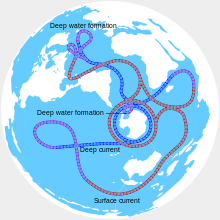






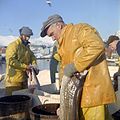






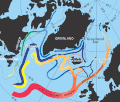









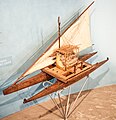


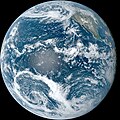







![Image 32"Terres Australes" [sic] label without any charted landmass (from Southern Ocean)](http://upload.wikimedia.org/wikipedia/commons/thumb/8/8e/Geography_world_map.jpeg/120px-Geography_world_map.jpeg)
